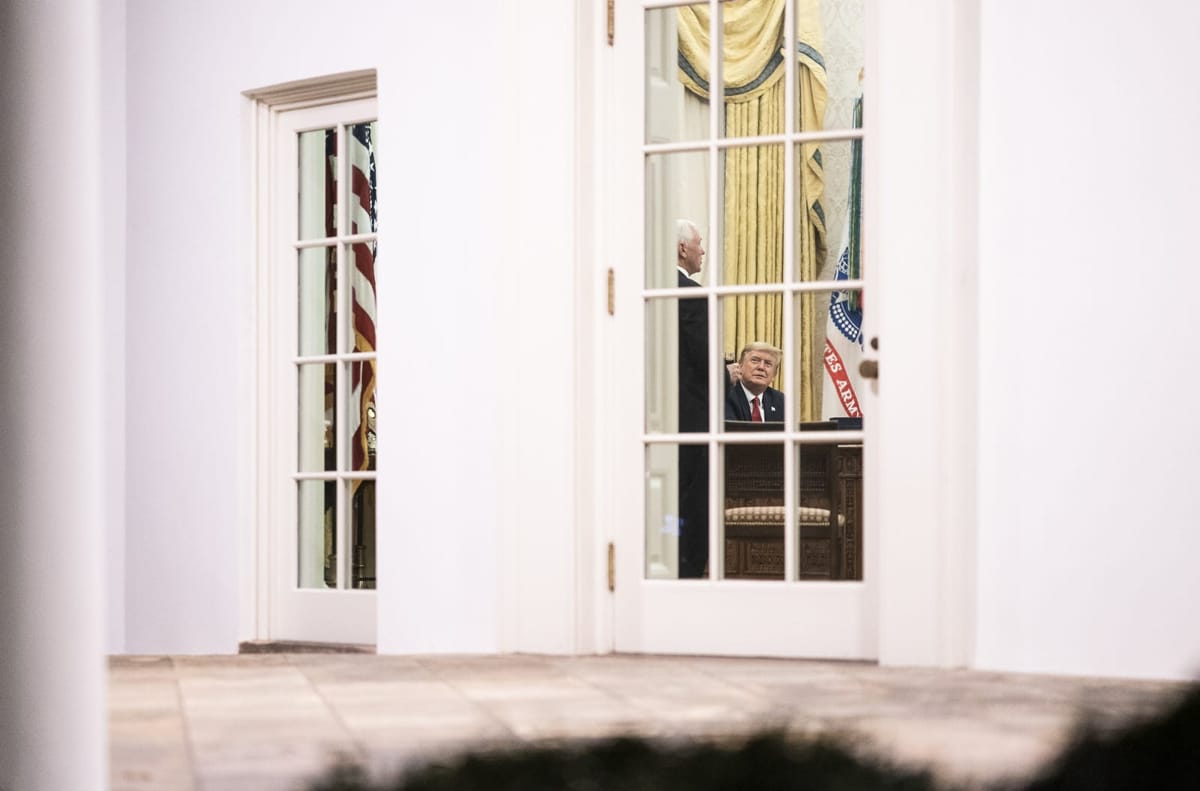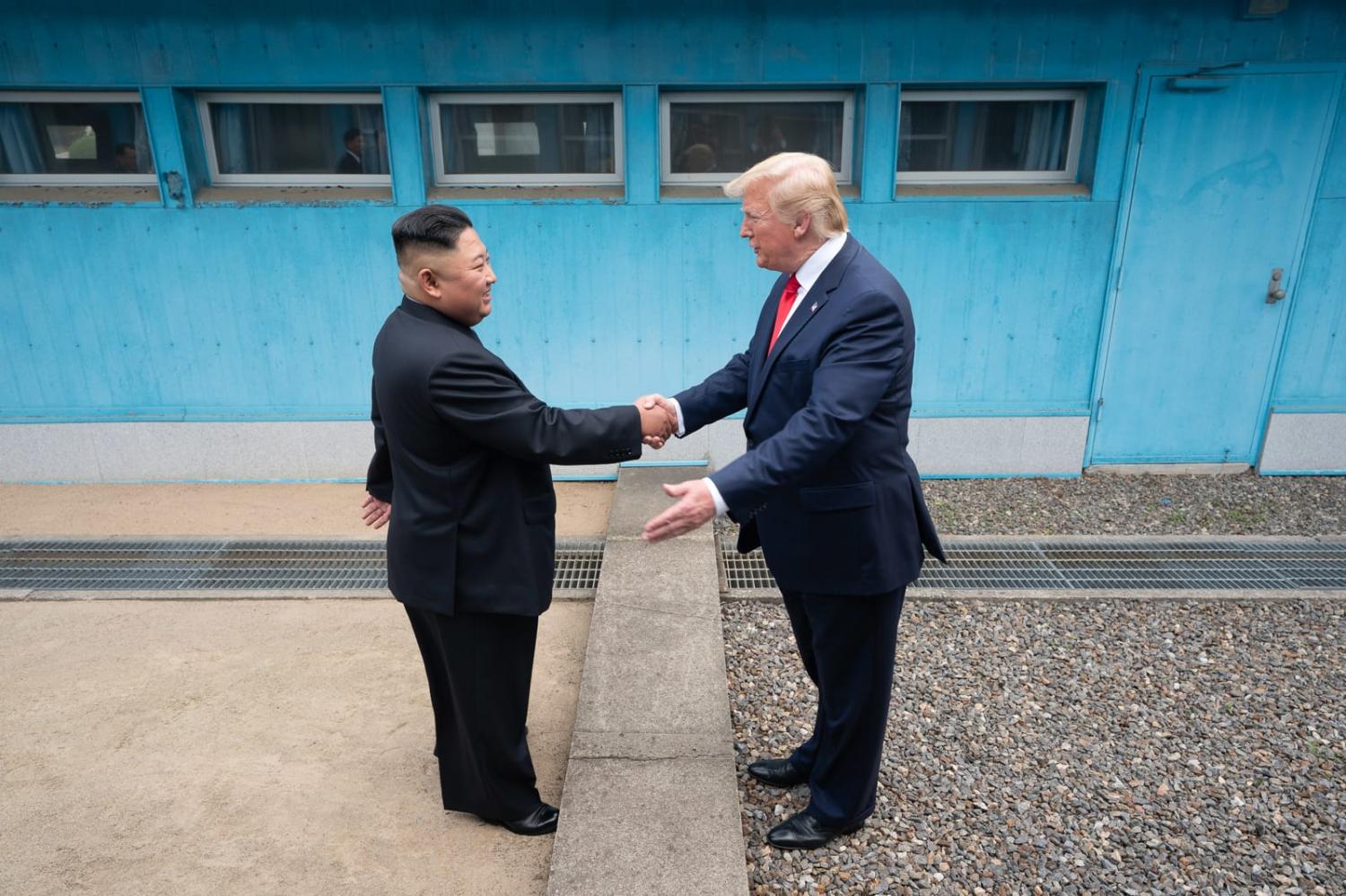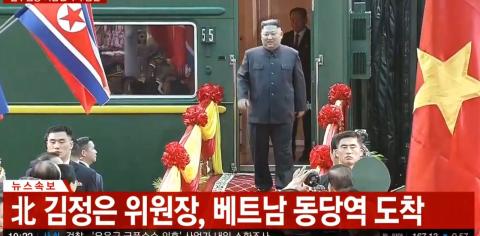Imagine Donald Trump does win in the US Presidential election next year. Will he expect another “beautiful letter” from North Korea’s Kim Jong-un?
Trump’s summitry bromance with Kim was a feature of his term, the two meeting first in Singapore, then Hanoi, and finally shaking hands across the DMZ. Yet for all the fanfare in what was an unprecedented era of US-North Korea diplomacy, the outcome saw little material change. While North Korea has honoured its moratorium on nuclear testing, its weapons capabilities continue to grow.
Three years ago, just before Trump lost to Joe Biden, I argued that Kim would miss Trump. And the diplomatic momentum Trump created with Kim has fizzled out, with Biden seeking no new initiatives.
The North Korean leader has instead turned to other friends. In July 2021, North Korea and China normalised bilateral relations by extending the 1961 Treaty of Friendship, Cooperation, and Mutual Assistance for another 20 years. Russian President Vladimir Putin reached out to Kim for munitions following the invasion of Ukraine, with Russia and North Korea partying like the old Soviet days. Kim’s newfound friendship in Beijing and Moscow earned him their tacit approval for his nuclear and missile programs. North Korea is now confident enough to simulate a “tactical nuclear strike” on South Korea, launch a reconnaissance satellite using long-range missile technology, terminate the 2018 military accord with South Korea, and is soon to remilitarise the inter-Korean border.
A Trump return to the White House could offer Kim several benefits. As a transactional president, Trump is likely to put more pressure on South Korea to contribute more to the alliance and threaten to scale back US military presence in the region. At the same time, Trump is just the sort of character to want to revive personal diplomacy with Kim in a bid to claim success over Biden’s lacklustre North Korea policy.

Still, Trump will not find it easy to wade the same river twice because the approach to North Korea of incumbent South Korean President Yoon Suk-yeol is very different from his liberal predecessor Moon Jae-in.
Trump’s diplomatic accomplishments with Kim were a result of Moon’s sustained effort to improve inter-Korean and US-North Korea relations via his own initiatives and shuttle diplomacy. Moon added substance to the Trump-Kim personal diplomacy when they struggled to bridge their differences over nuclear diplomacy in the vague 2018 Singapore Declaration. He also saved the Trump-Kim bromance after the failed 2019 Hanoi summit with a “historic” meeting at Panmunjom on the border between South and North Korea. Moon did his best to maintain engagement with North Korea after Biden was elected and Kim shunned diplomacy altogether.
By contrast, Yoon’s hardline policy toward North Korea reduces the prospects for inter-Korean engagement. Yoon wants to deter North Korea through strength, not through peace. As such, it is unlikely that he would take the initiative to jumpstart US-North Korea dialogue or risk shouldering the blame like Moon did. Yoon can shower Trump with flattery, just as Moon was want to do, but Yoon’s motive will be entirely different – not to keep Trump engaged in détente, but to strengthen US commitment to defend South Korea against the North. Yoon would seek to convince Trump that South Korea is paying a fair share for the alliance via the reinvigorated South Korea-United States-Japan trilateral cooperation.
Kim well understands the differences between Moon and Yoon. The North Korean leader wasted no time to signal his upset after Yoon was elected South Korean president by breaking the moratorium on long-range missile testing in March 2022. Kim will likely surmise that if he was unable to sign a nuclear deal with a much more manageable Moon, how would he be able to do so with a more hawkish Yoon, even if Trump again sits in the Oval Office?
So, Trump’s return would not automatically mean a revival of the Trump-Kim personalised diplomacy. Trump is unpredictable – remember the warnings of “fire and fury” – and he has shown Kim that he is willing to walk away from an agreement, even when close to signing one. Memories of the Trump-Kim bromance will not solve US-North Korea differences overnight.
And with substantive backing from Russia and China now, North Korea does not see the need to limit its nuclear and missile programs via diplomacy with the United States and South Korea. Kim’s efforts to improve relations with China and Russia have paid off more than those with Trump. North Korea, for all its prickliness, would prefer a US president who is predictable rather than reckless. Maybe Trump isn’t the candidate for North Korea this time.

